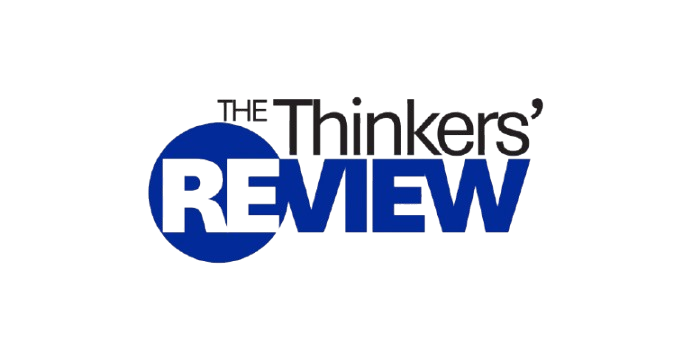Research Publication By Martha Ngozi Amadi
Institutional Affiliation:
New York Centre for Advanced Research (NYCAR)
Publication No.: NYCAR-TTR-2025-RP010
Date: June 10, 2025
DOI: https://doi.org/10.5281/zenodo.17392561
Peer Review Status:
This research paper was reviewed and approved under the internal editorial peer review framework of the New York Centre for Advanced Research (NYCAR) and The Thinkers’ Review. The process was handled independently by designated Editorial Board members in accordance with NYCAR’s Research Ethics Policy.
Nursing management science has become an essential discipline in the dynamic context of healthcare delivery. It integrates clinical expertise with leadership, systems thinking, and organizational effectiveness. As patient acuity rises, healthcare systems become more complex, and workforce challenges grow, the need for professionally trained, scientifically grounded nurse managers is more urgent than ever.
This article explores how nursing management science contributes to modern healthcare delivery, and how its advancement influences patient outcomes, nurse well-being, and health system performance.
The Role of Nursing Management Science
Nursing management science focuses on applying evidence-based leadership principles and operational strategies to enhance the functioning of healthcare institutions. It addresses not only administrative oversight but also strategic decision-making, workforce development, and quality assurance.
According to Marquis and Huston (2021), nurse managers today must navigate complex clinical environments, manage multidisciplinary teams, interpret data for policy implementation, and drive innovation. Nursing leadership is no longer purely hierarchical—it is collaborative, adaptive, and results-oriented.
Nursing Leadership and Patient Outcomes
A significant body of research links effective nursing leadership to improved patient outcomes. Wong, Cummings and Ducharme (2021) found that positive nursing leadership—particularly transformational and relational styles—has a measurable impact on patient satisfaction, safety indicators, and staff retention.
Similarly, Aiken et al. (2021) demonstrated that the right nursing skill mix and leadership oversight in hospitals correlate with lower mortality rates, fewer complications, and better patient ratings. These outcomes validate the strategic role of nursing management not just in human resources, but in clinical governance and quality care delivery.
Workforce Management and System Efficiency
Staffing decisions are at the core of nursing management science. Antwi and Bowblis (2020) highlighted the importance of aligning nurse staffing levels with patient complexity and care demands. Inadequate staffing is associated with increased hospital stays, errors, and burnout, while optimal staffing enhances clinical efficiency and fiscal sustainability.
The science of nurse scheduling, workload balancing, and skill-mix optimization is increasingly data-driven. Nurse managers use informatics systems and evidence-based protocols to ensure safe staffing ratios and reduce care delays.
Read also: Innovative Surgical Nursing Strategies By Jane Ekwerike
Developing Competence in Nurse Managers
First-line nurse managers are essential in operationalizing hospital policies and maintaining unit performance. Yet, many enter management roles without formal training in leadership or health systems. Gunawan, Aungsuroch and Fisher (2020) conducted a systematic review identifying emotional intelligence, communication, financial literacy, and team-building as critical competencies.
Ongoing professional development, mentorship, and academic preparation in nursing management science are vital to cultivating these capabilities. Organizations that invest in structured leadership pathways tend to retain more staff and deliver better patient care.
Leadership, Identity, and Retention
Nurse retention is a growing concern globally, and leadership has a key role to play. Laschinger and Fida (2019) found that professional identity and workplace mistreatment are significant predictors of burnout among new nurses. Positive leadership that models integrity, inclusion, and support can mitigate these issues, promoting a culture of psychological safety and growth.
Leadership grounded in management science also empowers nurses to see their contributions not just in clinical terms, but as part of a larger mission of service, stewardship, and transformation.
Strategic Relevance in Modern Healthcare
Modern healthcare systems are data-intensive, patient-centered, and outcomes-driven. Daly, Speedy and Jackson (2020) argue that nursing leadership must shift from reactive task management to strategic systems thinking. Nurse managers should understand policy, interpret metrics, and lead change initiatives across departments and services.
The American Nurses Association (ANA, 2022) reinforces this evolution in its updated standards, placing leadership and systems-level competence as essential dimensions of professional nursing practice.
Conclusion
Nursing management science is no longer a support function—it is a leadership engine that drives clinical quality, staff well-being, and system performance. Advancing this discipline requires deliberate investment in leadership training, structural empowerment, and scientific thinking across nursing roles.
In modern healthcare, where complexity is the norm, scientifically trained nurse leaders will continue to shape not just patient care, but the future of healthcare systems at large.
Ms. Martha Ngozi Amadi is a distinguished health and social care expert with a strong academic and professional foundation. She holds a bachelor’s degree in the humanities from Ebonyi State University, Nigeria, and a postgraduate diploma in Health and Social Care Management from the New York Center for Advanced Research, United States. With a deep commitment to advancing healthcare systems and promoting effective nursing management, Martha combines her cross-continental education with years of hands-on experience. Her work reflects a passion for improving patient care outcomes, leadership in healthcare delivery, and innovative approaches to social care in diverse and evolving healthcare environments.
References
Aiken, L.H., Sloane, D.M., Griffiths, P., Rafferty, A.M., Bruyneel, L. and McHugh, M.D., 2021. Nursing skill mix in European hospitals: Cross-sectional study of the association with mortality, patient ratings, and quality of care. BMJ Quality & Safety, 30(7), pp.573–582. https://doi.org/10.1136/bmjqs-2020-011256
American Nurses Association (ANA), 2022. Nursing: Scope and Standards of Practice. 4th ed. Silver Spring, MD: ANA Publishing.
Antwi, M. and Bowblis, J.R., 2020. The impact of nurse staffing levels on patient care costs and outcomes. Health Services Research, 55(4), pp.674–683. https://doi.org/10.1111/1475-6773.13273
Daly, J., Speedy, S. and Jackson, D., 2020. Contexts of Nursing: An Introduction. 6th ed. Chatswood: Elsevier.
Gunawan, J., Aungsuroch, Y. and Fisher, M.L., 2020. Factors contributing to managerial competence of first-line nurse managers: A systematic review. International Journal of Nursing Practice, 26(6), e12818. https://doi.org/10.1111/ijn.12818
Laschinger, H.K.S. and Fida, R., 2019. New nurses burnout and workplace mistreatment: The influence of professional identity and leadership. Journal of Nursing Management, 27(2), pp.179–187. https://doi.org/10.1111/jonm.12719
Marquis, B.L. and Huston, C.J., 2021. Leadership and Management Tools for the New Nurse: A Case Study Approach. 2nd ed. Philadelphia: Lippincott Williams & Wilkins.
Wong, C.A., Cummings, G.G. and Ducharme, L., 2021. The relationship between nursing leadership and patient outcomes: A systematic review update. Journal of Nursing Management, 29(3), pp.345–356. https://doi.org/10.1111/jonm.13106

